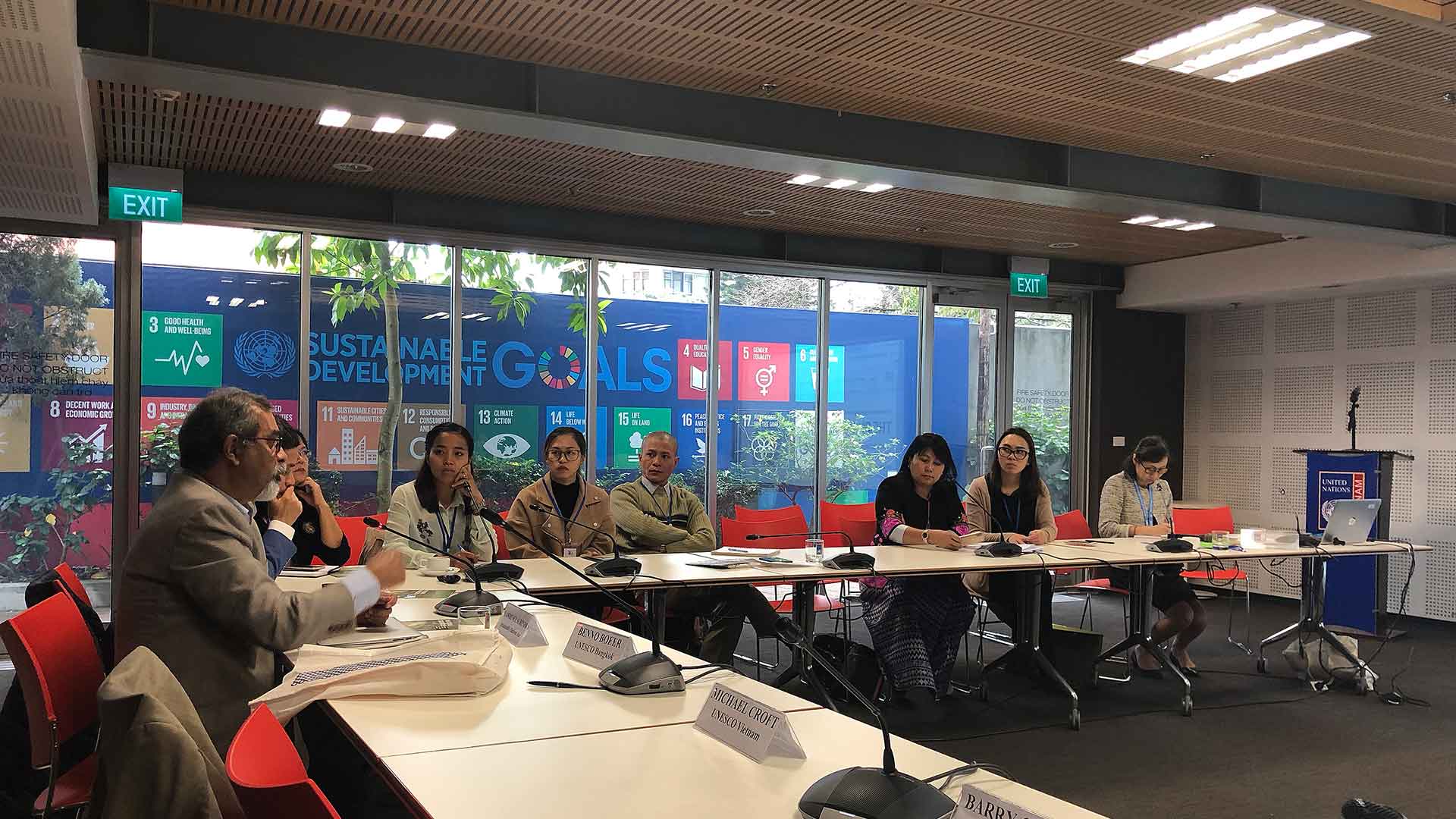Plastic waste is one of the greatest environmental threats of our time. Overproduction of plastic, wasteful ‘throw-away’ lifestyles and poor waste management policies all around the world are prime reasons for why the issue has gotten so out of control. This mismanagement of plastic as a resource, has led to vast amounts of plastic accumulating all over the globe, particularly in the oceans. It is estimated that by the year 2050, 12 billion tons of plastic will have entered the oceans.
On March 18th 2019, UNESCO’s ‘Plastic Initiative’ was officially launched at the Green One UN House in Hanoi. Here, a small group of people, including representatives from Cambodia, Lao PDR, Thailand and Vietnam got together to discuss the issue of plastic pollution in Southeast Asia. The aim of this workshop was to identify individual and shared plastic pollution issues and concerns in the ASEAN countries and to identify possible solutions. A network was established, with representatives from the ASEAN countries, along with UNESCO’s Plastic Initiative team, to identify and tackle plastic pollution in the ASEAN countries.
Plastic pollution is one of the greatest environmental threats in Asia, particularly Southeast Asia. Here plastic waste has exceeded manageable amounts, and countries are struggling to deal with it. Change needs to happen and action is already being taken. Many governments are already striving towards implementing a circular economy. Steps are being taken, but help is still needed.
The Plastic Initiative has three core objectives:
Woking together with the support of government representatives from Cambodia, Lao PDR, Thailand and Vietnam, UNESCO´s “Plastic Initiative” will tackle plastic pollution through the funding and testing of grass-root projects, dissemination of educational material and assistance in the development of national waste management action plans.
In the ongoing fight against plastic pollution, education, particularly of young people, is of great importance. For this reason another objective of “The Plastic Initiative” will be to promote and disseminate educational plastic and plastic waste management materials.
Finally, to address other aspects of plastic waste management, this initiative will assist in the development of synchronised national plastic waste action plans across the ASEAN countries. Plastic is a resource which must be managed effectively. Therefore, it is important to introduce the elements of reduce, reuse and recycle into the economy. Through cooperation with the Plastic Initiative network, action plans will be developed to support countries and governments in reducing plastic pollution.
Woking together with the support of government representatives from Cambodia, Lao PDR, Thailand and Vietnam, UNESCO´s “Plastic Initiative” will tackle plastic pollution through the funding and testing of grass-root projects, dissemination of educational material and assistance in the development of national waste management action plans.


